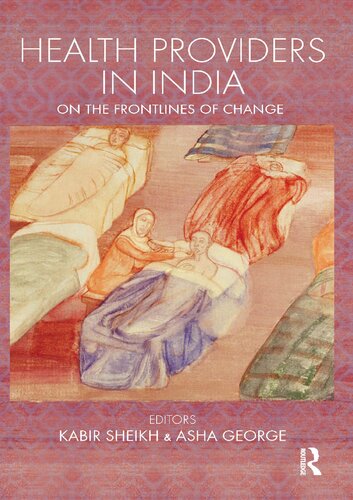

Most ebook files are in PDF format, so you can easily read them using various software such as Foxit Reader or directly on the Google Chrome browser.
Some ebook files are released by publishers in other formats such as .awz, .mobi, .epub, .fb2, etc. You may need to install specific software to read these formats on mobile/PC, such as Calibre.
Please read the tutorial at this link: https://ebookbell.com/faq
We offer FREE conversion to the popular formats you request; however, this may take some time. Therefore, right after payment, please email us, and we will try to provide the service as quickly as possible.
For some exceptional file formats or broken links (if any), please refrain from opening any disputes. Instead, email us first, and we will try to assist within a maximum of 6 hours.
EbookBell Team

4.1
100 reviewsThis volume has articles contributed by health researchers, practitioners, policy advocates, programme managers and a journalist, and poems by renowned poet–physician Gieve Patel. Each presents a distinctive view of a particular group of frontline health providers, based on field research or on the authors’ respective experiences of working with or as providers. The health providers addressed in this volume include doctors (working in the public and private sectors), nurses, public health workers, counsellors, traditional practitioners and homecare providers.
Different groups of health providers face struggles at diverse frontiers ― social, professional and systemic. In the context of reforming health systems, government health workers must constantly negotiate the vagaries of changing working environments and policy vacillations. For traditional and homecare providers, formal health systems and structures often only reject and exclude their contributions. Medical doctors, conversely, face difficult challenges of introspection, as they tread the line between personal gain and public service.
The ideas and themes that emerge in this collection not only contribute to the understanding of providers’ roles as actors in the health systems and societies of contemporary India, but re-examines preconceptions about this critical occupational group. This volume advances the case for a deeper appreciation of India’s complex landscape of healthcare provision, and of the potential roles of frontline health providers as central figures in development.